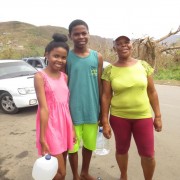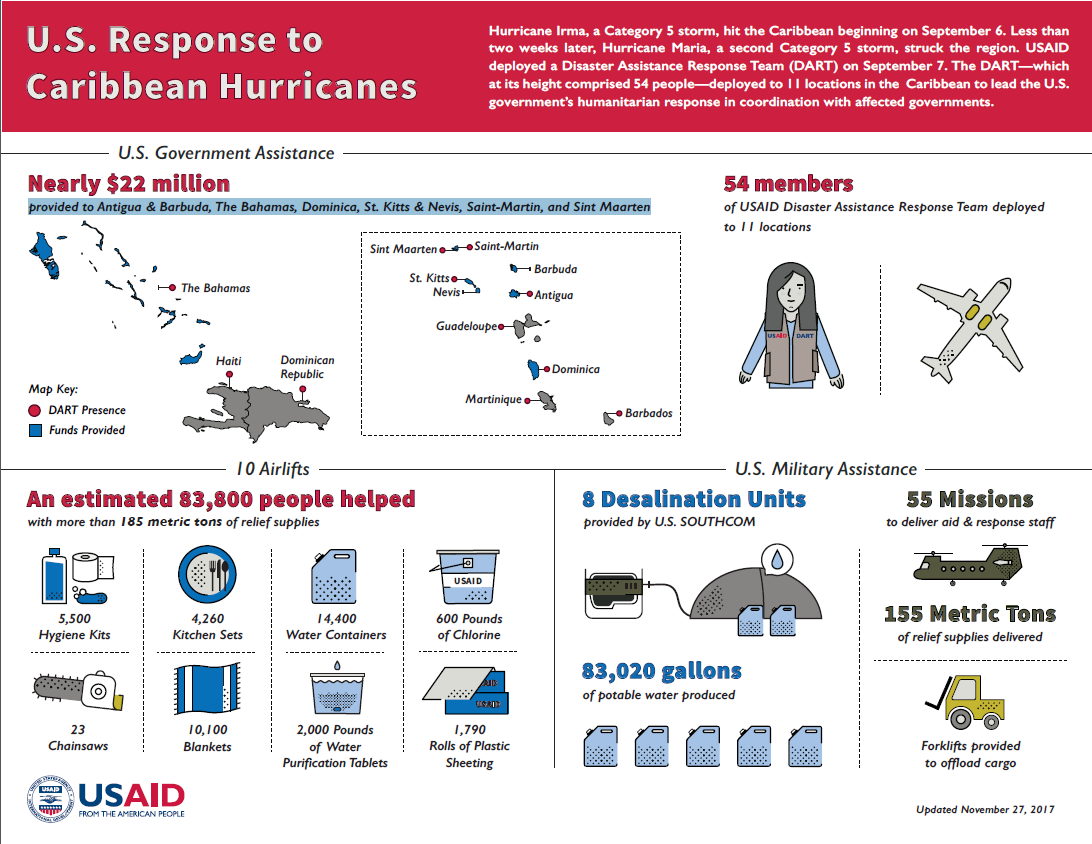Speeches Shim

As Hurricane Maria bore down on Dominica on the night of September 18, Cecil Shillingford, a USAID Office of U.S. Foreign Disaster Assistance (USAID/OFDA) disaster risk management specialist and life-long Dominican resident, took shelter from the 160-mile-per-hour winds in his home outside the capital city of Roseau.

On the night of September 18, Hurricane Maria struck the eastern Caribbean island nation of Dominica as a Category 5 storm. Maria’s relentless rains and winds devastated the country, killing at least 27 people and affecting all 71,000 island residents.
Communities throughout Dominica are receiving ongoing distributions of food assistance, transitional shelter support, and safe drinking water. The Government of the Commonwealth of Dominica (GoCD) and international response stakeholders are coordinating efforts to address potential gaps in assistance to ensure that all populations in need receive support, according to the UN. As of October 10, the GoCD, in coordination with the UN World Food Program (WFP) and other relief actors, had distributed a total of 150 metric tons (MT) of food, benefiting an estimated 50,000 Dominicans, or approximately 70 percent of Dominica’s residents.
Humanitarian conditions in Dominica continue to improve. The Government of the Commonwealth of Dominica (GoCD) is prioritizing distributions of food, shelter assistance, and safe drinking water to meet the needs of hurricane-affected people. To improve access and facilitate recovery and reconstruction activities, including the restoration of water supply networks, the GoCD and international stakeholders have also prioritized the removal of storm debris.
Today, United States Agency for International Development (USAID) Administrator Mark Green met with Roosevelt Skerrit, Prime Minister of the Commonwealth of Dominica. Administrator Green reiterated the U.S. Government's concern and support for the people of Dominica, and extended his thoughts to those affected by Hurricane Maria.


Comment
Make a general inquiry or suggest an improvement.